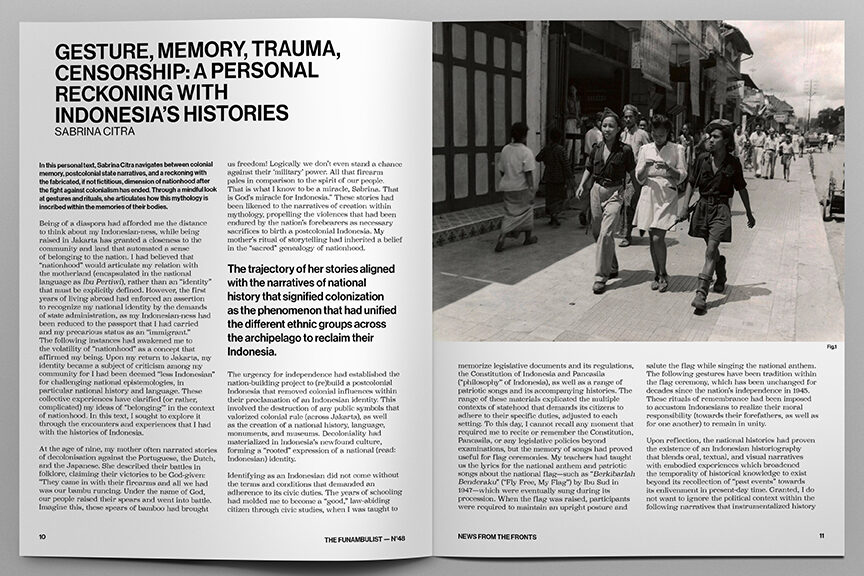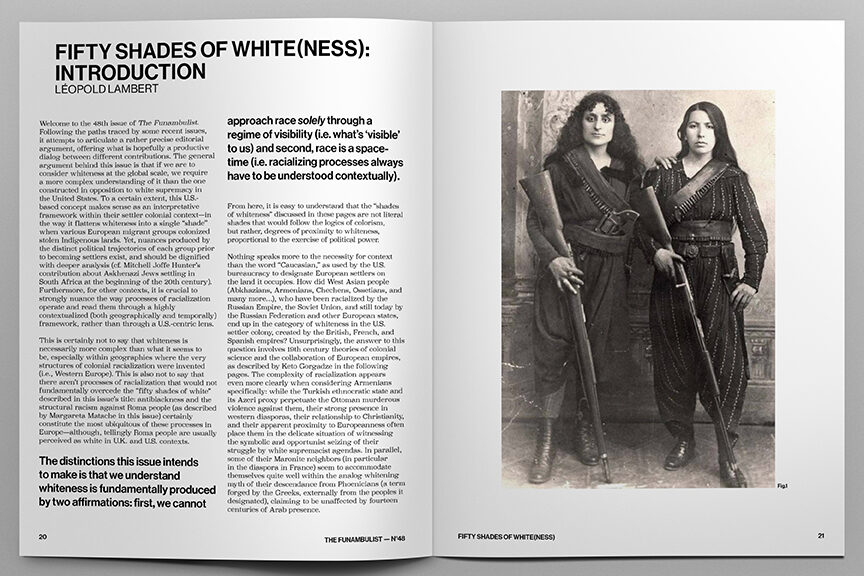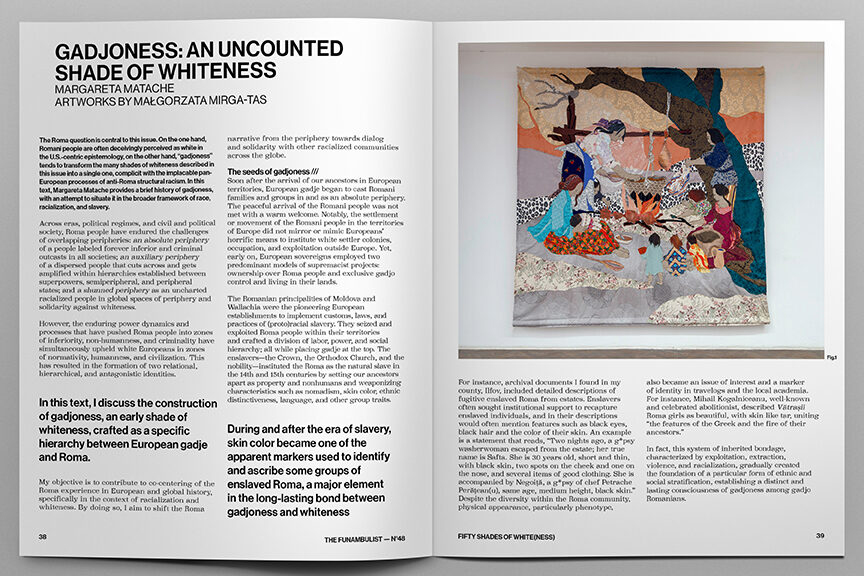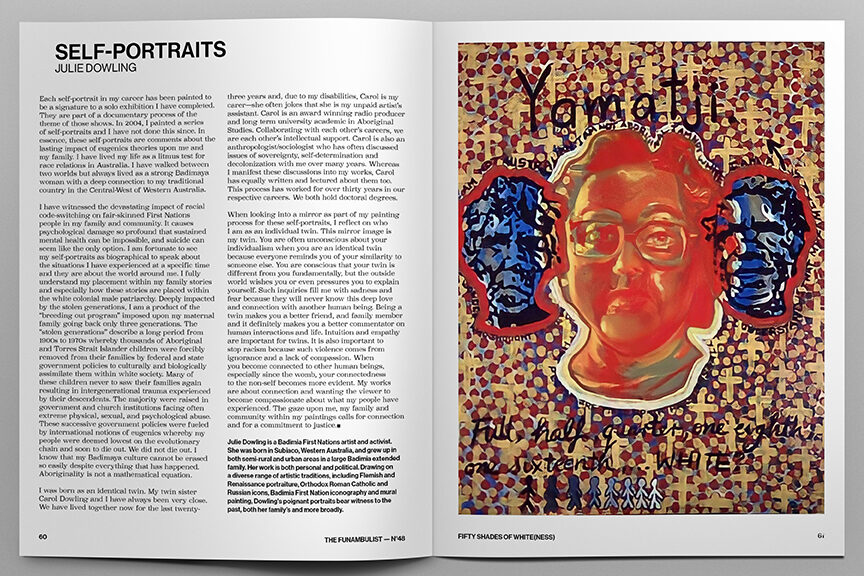在庫状態 : 売り切れ
The 48th issue of The Funambulist is entitled “Fifty Shades of White(ness).” Beyond its tongue-in-cheek title, the general editorial argument is that if we are to consider whiteness at the global scale, we require a more complex understanding of it than the one constructed in opposition to white supremacy in the United States. As stated in Léopold Lambert‘s introduction (read the complete text here), “The distinctions this issue intends to make is that we understand whiteness as fundamentally produced by two affirmations: first, we cannot approach race solely through a regime of visibility (i.e. what’s ‘visible’ to us) and second, race is a space-time (i.e. racializing processes always have to be understood contextually).” With this in mind, this issue analyzes regimes of racialization of Caucasians, i.e. people of the Caucasus (Keto Gorgadze) and Romani people (Margareta Matache) or how, in certain spatial and temporal contexts, Ukrainians (Darya Tsymbalyuk) or Poles (Kasia Narkowicz) are situated “in proximity with” whiteness, in a nuance that the settler colonial paradigm fails to conceptualize. The issue also complexifies whiteness in such a colonial context, describing the specific position assumed by Ashkenazi Jews in South Africa (Mitchel Joffe Hunter), analyzing the way Polynesians have been racialized as “almost white” by European colonizers (Maile Arvin, interviewed by Anaïs Duong-Pedica), describing the way mestizaje has succeeded in dissimulating colonial whiteness in the Mesoamerican context (Mónica G. Moreno Figueroa), and portraying the tensions between Indigeneity and ‘pale skin’ in the context of Australia’s “stolen generations” (Julie Dowling). The cover’s artwork is a piece by Polish-Romani artist Małgorzata Mirga-Tas.
This issue’s News from the Fronts come from Indonesia (Sabrina Citra) and southeastern Nigeria (Amarachi Iheke). They are accompanied by a text describing the design practice of Martinique-based ibiyanε by Camille Bacon.



